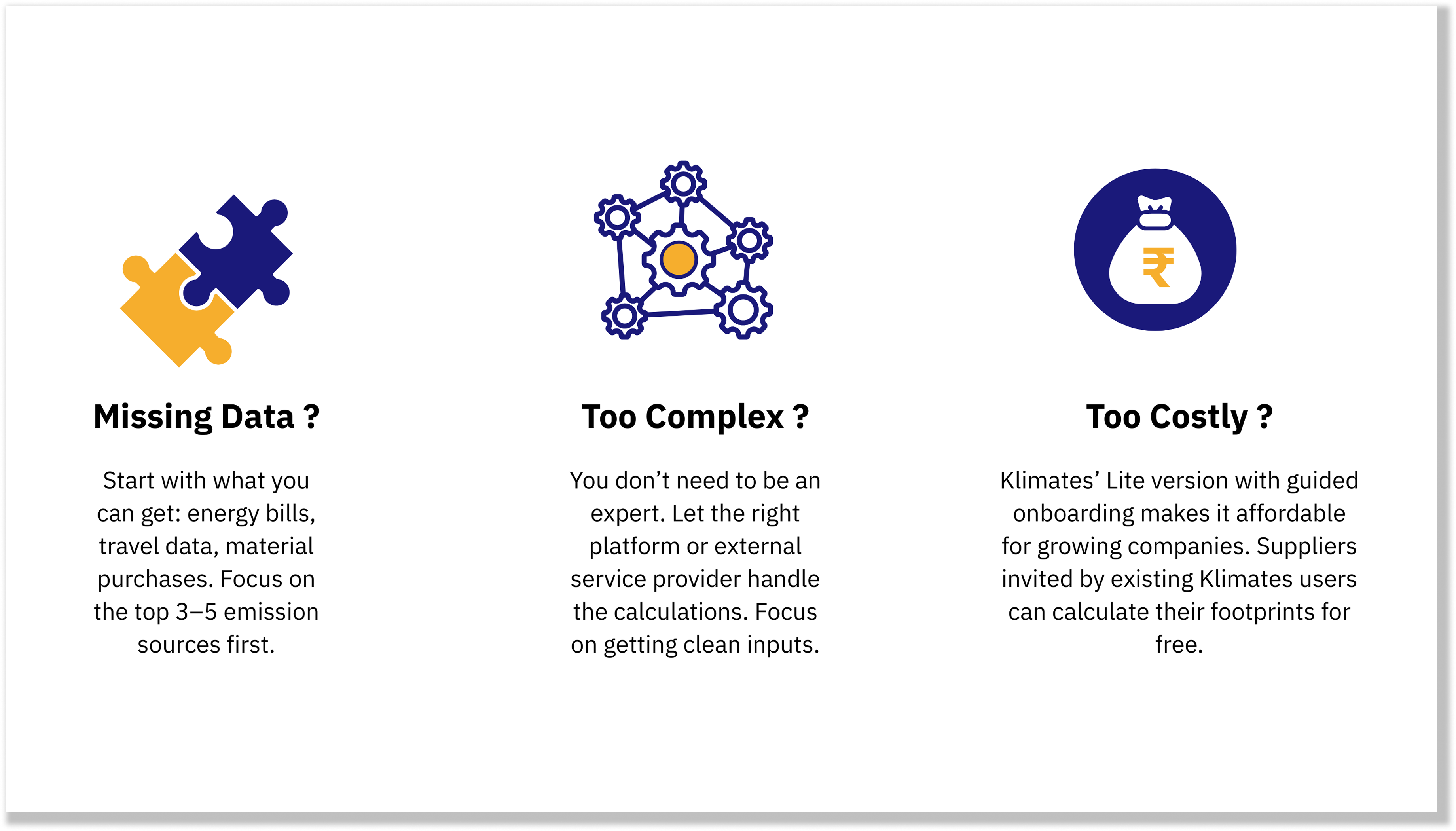Updated on: August 01, 2025
Got an ESG Data Request from a Customer or Investor? Here's What to Do
You’ve just received an email from a major customer or investor asking for your “climate disclosures” or “ESG data.” If your first reaction is Wait, what does that even mean?, you’re not alone.
More and more companies especially suppliers and vendors are being asked to share sustainability data. It might be through a formal platform like EcoVadis, CDP, or BRSR Core or as a direct request for your carbon footprint and other ESG metrics.
And this isn’t just happening to big enterprises. MSMEs, franchisees, and even small logistics and packaging vendors are feeling the ripple effect.
In this article, we break it down:
- Why you're getting these requests
- What it actually means
- And how to respond without getting overwhelmed
Why are you being asked for Climate or ESG disclosures ?
There are three main drivers :
Your customers are under pressure to report on their Scope 3 emissions
Preferences are changing very quickly
Investors want to assess your climate risks
What should you do next ?
Here’s a simplified plan to help you respond confidently, even if you’ve never done this before.
Step 1 : Clarify what’s being asked
- Who is requesting the data an investor, or a buyer ?
- What scope of information is needed ? For example check whether they want just Scope 1 and 2 or Scope 3. data also.
- Is the format standardized (CDP, EcoVadis, BRSR) or their own internal format ?
Define your boundaries
- Which operations and facilities fall under your control ?
- Are you a subsidiary or part of a group ? Who holds financial or operational control ?
- Which emission sources or ESG metrics are material to your operations ?
Identify the data you already have
- Utility Bills
- Fuel Logs
- Travel Records
- Safety, HR or CSR policies
- And if nothing else, you always have your spend data as a starting point
Don’t start from scratch, you probably already have 50% of what is needed.
Get internal alignment
- Operations (for energy/waste/logistics data)
- Finance (for procurement and reporting)
- HR (for people related data and policies)
You don’t always need a separate sustainability team, but you do require clear data owners.
Use standard frameworks
- GHG Protocol to calculate emissions
- BRSR or GRI to structure your ESG metrics and policies
Don’t try to be perfect, just be transparent
Leverage technology
Common Challenges and How to Handle Them

Don’t let a disclosure request panic you. This isn’t about ticking boxes or impressing a global rating agency. It’s about showing your partners, customers, and investors that you're serious about the future, and that you’re building a responsible, resilient business.
And if you get started today, you’ll be ready not just for this request, but the many that will follow.
You can Book a demo of Klimates to see how it can help you prepare for ESG and climate disclosures
Solutions
Resources
Company
Glossary